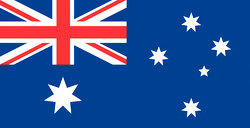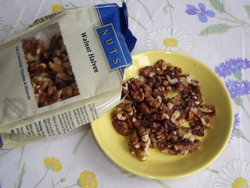Introduction
If you are exploring the possibility of having fertility acupuncture in Exeter, then read on. I have written this article for couples who have been trying to conceive for around six to twelve months or more, without success. In it, I shall outline some of the issues which are important from a Chinese medical perspective, so that you can consider whether acupuncture is something you might like to try with the aim of improving your chances of a natural conception. A report(1) as long ago as 2012 found that fertility acupuncture treatment by professional acupuncturists, had by then already increased fivefold over a ten year period.
The Main Causes of Infertility
We can simplify this complex subject a little for ourselves to start with. There are three main causes of infertility to bear in mind. Firstly, a woman may not be releasing an egg every month ie. not ovulating. Secondly, fertilisation may not be taking place, perhaps due to problems with sperm quality or blocked Fallopian tubes. Thirdly, the embryo is failing to implant in the womb lining, perhaps because it is not thick enough.
Who Comes for Acupuncture
Couples I see are at one of two stages:
1) The first group have been trying to conceive for long enough (often around two years) for their GP to have arranged some tests, usually a semen analysis for men and blood hormone tests for women. The results of these tests are of interest to me, and they may or may not point towards anything of significance. If one partner’s tests are revealing an abnormality, then it is that partner who should come to see me. If neither partner’s tests indicate significant abnormalities, then in the first instance, I recommend you both attend for individual consultations.
The tendency in the NHS is for this group to move swiftly to IVF, but there are other steps that can be worth taking and which may avoid the need. Remember also that IVF circumvents the first two causes of infertility mentioned above, but still only around 30% of transferred embryos will successfully implant. Furthermore, a natural conception is always the most desirable way forward where possible.
2)The second group are those who have been trying for a shorter time, perhaps six to twelve months, but who would like to take the step of arranging a fertility acupuncture consultation. If you fall within this group, then in the absence of any orthodox medical investigations to this point, we can see whether a Chinese medical analysis of your health, reveals patterns which could be impeding conception. Hence it again makes sense for you both to come for individual initial assessments.
Initial Consultation
At the first interview, I shall be interested in your general health, and details such as your age, whether one or both of you is already a parent (indicating past fertility), your occupation, energy levels, your diet, smoking, alcohol consumption etc. For women, the characteristics of your cycle offer invaluable information from a Chinese perspective: your cycle length, period length, and flow for example. Have there been any changes in the last few years? Do you experience any PMS? Have you used the contraceptive pill and when? If you use a lubricant, is it harmless to sperm? (KY Jelly for example, is not recommended.) Monitoring cervical mucus has been shown to be helpful.
Lifestyle Factors
Here are examples of what we know about some age and lifestyle factors. There may be a few ideas here that you can immediately implement to give yourselves some marginal gains.
Age
A woman’s fertility peaks in her twenties and starts to decline more rapidly from around 35. At 30, the chance of conceiving each month is 20%. By 40, this reduces to 5%.
Diet
A high intake of low-fat dairy foods appears unhelpful, whereas whole-fat dairy seems to have a positive effect. As little as 4g per day of trans-fats, has been strongly associated with ovulation problems. A diet rich in foods which are high in antioxidants seems helpful for both sexes – fruit, vegetables, grass-fed meat, nuts, seeds and seafood. The majority of trials investigating antioxidant supplementation for reproductive disorders, found that male fertility and pregnancy rates improved.
A diet rich in foods which are high in antioxidants seems helpful for both sexes – fruit, vegetables, grass-fed meat, nuts, seeds and seafood. The majority of trials investigating antioxidant supplementation for reproductive disorders, found that male fertility and pregnancy rates improved.
 A study showed women who ate a high glycaemic load diet, were more likely to have problems ovulating. There is a decreased risk in women who eat carbohydrates with a low glycaemic load. Another study linked artificial sweeteners like those used in diet soft drinks, to reduced fertility in women. The same study also found that the use of sugar in soft drinks and coffee can result in poorer quality eggs and embryos.
A study showed women who ate a high glycaemic load diet, were more likely to have problems ovulating. There is a decreased risk in women who eat carbohydrates with a low glycaemic load. Another study linked artificial sweeteners like those used in diet soft drinks, to reduced fertility in women. The same study also found that the use of sugar in soft drinks and coffee can result in poorer quality eggs and embryos.
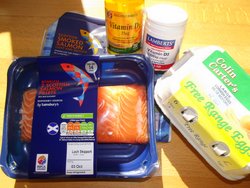 Good vitamin D status may be helpful too. We make this when exposed to sunlight, and we can obtain it from foods such as egg yolk and oily fish. Some studies suggest it is important for a great many aspects of female reproductive health, including follicular development, endometrial receptivity and maintenance of pregnancy.
Good vitamin D status may be helpful too. We make this when exposed to sunlight, and we can obtain it from foods such as egg yolk and oily fish. Some studies suggest it is important for a great many aspects of female reproductive health, including follicular development, endometrial receptivity and maintenance of pregnancy.
Caffeine
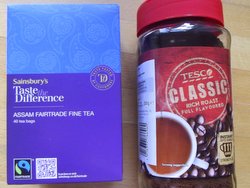 Studies have suggested an increase in time to conception in women who consume caffeinated drinks. Remember caffeine might be in your sports drinks too. As a guide, one study indicated that women consuming seven or more cups of tea or coffee per day, might be sub-fertile.
Studies have suggested an increase in time to conception in women who consume caffeinated drinks. Remember caffeine might be in your sports drinks too. As a guide, one study indicated that women consuming seven or more cups of tea or coffee per day, might be sub-fertile.
Smoking
Research consistently demonstrates that smoking has a negative impact on male and female infertility. It has been linked with increased risk of miscarriage, ectopic pregnancy, compromised fallopian tubes and poor endometrial receptivity.
Alcohol
Evidence regarding what is a “safe” level of alcohol intake from a fertility perspective, is inconclusive. Excessive consumption has been associated with infertility. The evidence for occasional consumption is less clear.
Stress and anxiety
Sexual activity and libido have been found to be reduced in couples who are stressed. Over the years, I have noticed what an effective contraceptive stress can be. Acupuncture can be very helpful here: see the research reported below (Stress reduces chances of Conception, 15 June 2011). Stress can for example, raise prolactin levels, thus interfering with ovulation. An American study following 500 couples over one year, found a 29% reduction in fertility in couples demonstrating high levels of stress. Another US study found that men reporting two or more recent stressful life events, were more likely to have poorer sperm quality.
Male Fertility
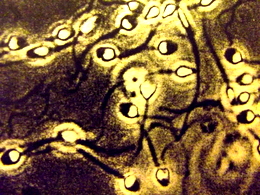
The last item leads us on to men more specifically. If you have had a sperm sample analysed, and have had a result indicating low fertility, then that is obviously significant. Besides that though, Chinese medicine looks at a much wider picture of your health and lifestyle, so I will have other questions to put to you. Western medicine has usually put its focus on female infertility. A female reproductive system which is as healthy as possible, can assist the sperm in several useful ways. Western medicine however has few treatment options for male sub-fertility and often cannot even find a cause. It is however, a growing problem worldwide.
Environmental Factors
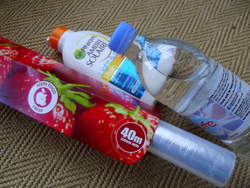
Reports began appearing in medical journals in the early 1990s, and explanations include lifestyle factors and/or chemicals in our environment. Oestrogens excreted into the water supply by women using the contraceptive pill or hormone replacement therapy, may be one factor. Other prescribed drugs evade removal from the water supply, by older treatment plants. A contribution might come from oestrogen-like chemicals released from products as diverse as plastic bottles, sunscreen lotions and clingfilm. (Bisphenol A, used in food and beverage containers, is a known endocrine disruptor. A study by the University of Exeter found 86% of teenagers have traces in their bodies.)
There are also concerns about drugs taken in pregnancy having an effect on testicular development in the unborn male foetus eg paracetamol. Whatever the causes, the Aberdeen Fertility Centre in Scotland reported several years ago, a drop in average sperm concentrations among its patients, from 87 million/ml to 62 million/ml, between 1989 and 2002.
Lifestyle & Diet
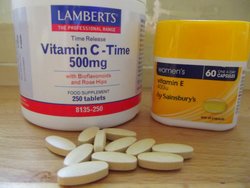 Lifestyle factors are fortunately more in our control. There has been some evidence that a high intake of soya eg milk, yoghurts, tofu, is associated with reduced sperm counts, so a precautionary approach would seem sensible. It also seems that a high intake of saturated and monounsaturated fat is associated with significantly reduced sperm concentration. Conversely, a high intake of healthier polyunsaturated fatty acids is associated with improved sperm motility and morphology (5). Have plenty of fish, fruit and vegetables: the Mediterranean diet seems helpful (13). Avoid ready-meals, as these are so often high in sugar, salt and fat.
Lifestyle factors are fortunately more in our control. There has been some evidence that a high intake of soya eg milk, yoghurts, tofu, is associated with reduced sperm counts, so a precautionary approach would seem sensible. It also seems that a high intake of saturated and monounsaturated fat is associated with significantly reduced sperm concentration. Conversely, a high intake of healthier polyunsaturated fatty acids is associated with improved sperm motility and morphology (5). Have plenty of fish, fruit and vegetables: the Mediterranean diet seems helpful (13). Avoid ready-meals, as these are so often high in sugar, salt and fat.
Consider taking a good quality male pre-conceptual supplement containing vitamins B12, C, E, selenium and zinc. The last four of these are antioxidants, thought to protect sperm from DNA damage. A zinc deficiency can also impair sperm production, sperm quality (9), sexual function and prostate health; symptoms of a deficiency might include slow wound healing, low libido, a deteriorating sense of flavour or smell, and poor immune function.
Good vitamin D status, mentioned above in connection with female fertility, may also be important for men. An updated review of research has highlighted somewhat conflicting results, but most papers pointed towards vitamin D being useful, particularly for sperm motility.
Exercise
 Moderation is the rule to remember. Regular and moderate exercise has been shown to improve blood flow and reduce oxidative stress, which may improve fertility. In one study, men who exercised for more than fifteen hours per week, had improvements in sperm parameters compared with men who exercised less than five hours per week.
Moderation is the rule to remember. Regular and moderate exercise has been shown to improve blood flow and reduce oxidative stress, which may improve fertility. In one study, men who exercised for more than fifteen hours per week, had improvements in sperm parameters compared with men who exercised less than five hours per week.
Medication
A number of different types of medication can have an effect on sperm quantity and quality. The SSRI group of anti-depressants has been associated with sperm damage (2), specifically increased sperm DNA fragmentation. Anti-histamines (3) are giving cause for concern, as is ibuprofen (4) taken continuously over a period of time. Steroids such as prednisone and cortisone can be unhelpful too.
If you take prescribed medication, ask your GP about any possible unwanted effects on sperm.
Age and Weight
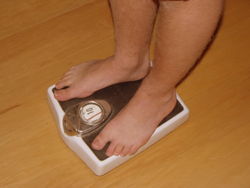
Male fertility declines with age. There is also a correlation between body weight and male fertility. In one study of 1500 men, those with a body mass index (BMI) below 20, had a 28% lower sperm count, and those with a BMI above 25, had a 22% lower sperm count. Maintenance of a health body weight therefore appears important.
Avoiding Heat
Sperm production is most efficient at 34 degrees C, which is 3 degrees below normal overall body temperature. Men might be well-advised to avoid hot baths, saunas, intense exercise, and using a laptop computer literally on the lap. A change from tight underwear to loose boxer shorts would seem sensible.
Smoking, Alcohol & Recreational Drugs
As stated above, smoking can reduce fertility (6). Semen volume and sperm morphology are poorer in men who consume alcohol daily (12).
In a Danish study of 1200 young men, smoking cannabis more than once per week was associated with a 29% reduction in sperm count. A large systematic review (14) of 48 studies found that cannabis use is strongly associated with reductions in sperm count and concentration; motility, morphology and viability would also appear to be impaired.
Sleep
Another study from Denmark (10), suggests that going to bed before 10.30pm, and trying to aim for around eight hours of sleep, seems to be associated with better semen quality.
A Deeper Look at Sperm Quality
So far, I have referred above mainly to sperm count, motility and morphology. We should also though, look more at sperm quality. With regard to recurrent miscarriage in particular, research (7) at Imperial College, London is now suggesting that quality may be a factor here. Early studies are implicating sperm DNA damage as one cause, and the team is going on to look at obesity as another potential association. The DNA fragmentation tests offered by some clinics, are an attempt to acknowledge that hidden DNA damage can be present inside sperm, even though basic count, motility and morphology seem passable. In a pilot study, chromosomal damage was associated with infertility, but this damage did not correlate with count, motility or morphology ie it was hidden from all but a more in-depth genetic analysis.
A systematic review suggests an association in men between low intake of folate (found in dark leafy green vegetables, beans, oranges, lemons etc) and poorer sperm quality. The latter may lead on to greater difficulty conceiving, a higher chance of miscarriage and congenital abnormalities.
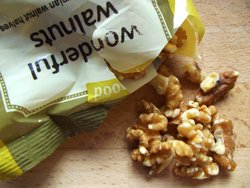
Research (8) from the Newcastle Fertility Centre at Life, suggests that up to the age of 45, a man’s age is less important than his sperm quality, suggesting lifestyle factors are worth paying close attention to.
See also my research article below on the positively helpful effects of walnuts.
Acupuncture
Research suggests a course of acupuncture, alongside the lifestyle measures indicated by what I have written above, can be helpful for sperm morphology (11).
Summary
Returning to our main topic then, I will gather all of the information gained from interview, and will formulate a treatment plan for either or both of you. Lifestyle advice may involve diet, exercise, more rest etc. You should bear in mind that I always recommend that both of you consume no alcohol and stop smoking. I will then usually suggest a fixed number of fertility acupuncture sessions followed by a review.
If you are a woman of 35 or over, or if either of you have in the past had any medical conditions which could have affected reproductive health, then it is my recommendation that you see your GP if you have not already done so. It does not prevent you embarking on a course of acupuncture treatment, but it might save us valuable time.
Please do call me to discuss your situation or to arrange an appointment. Below you can read the results of some of the research which has been undertaken into acupuncture for fertility. The trials vary in quality, but systematic reviews and randomised controlled trials are generally considered to provide the highest quality evidence. If you would like to read more about evidence quality, I would refer you to the British Acupuncture Council’s description of the evidence pyramid.
References
(1) Acupuncture in Practice: Mapping the Providers, the Patients and the Settings in a National Cross-Sectional Survey. British Medical Journal Open, January 2012.
(2) Semen abnormalities with SSRI antidepressants. PubMed.gov
(3) Potential Negative Effects of Anti-Histamines on Male Reproductive Function. Reproduction, May 2018.
(4) Ibuprofen alters human testicular physiology to produce a state of compensated hypogonadism. Proceedings of the National Academy of Sciences of the United States of America, January 2018.
(5) American Society for Reproductive Medicine 66th Annual Meeting.
(6) Analysis of the functional aspects and seminal plasma proteomic profile of sperm from smokers. BJUI, online 20 June 2016.
(7) Reduced Testicular Steroidogenesis and Increased Semen Oxidative Stress in Male Partners as Novel Markers of Recurrent Miscarriage. Clinical Chemistry Journal, January 2019.
(8) European Society of Human Reproduction and Embryology (ESHRE). “The outcome of fertility treatments using donor sperm is not dependent on male age, but on the quality of sperm.” ScienceDaily, 30 June 2014.
(9) Zinc is an Essential Element for Male Fertility: A Review of Zn Roles in Men’s Health, Germination, Sperm Quality, and Fertilization. Journal of Reproduction & Infertility, 2018.
(10) Associations of bedtime, sleep duration, and sleep quality with semen quality in males seeking fertility treatment: a preliminary study. Basic & Clinical Andrology, 23 April 2020.
(11) Quantitative evaluation of spermatozoa ultrastructure after acupuncture treatment for idiopathic male infertility. Fertility and Sterility, 1 July 2005.
(12) Semen quality and alcohol intake: a systematic review and meta-analysis. Reproductive Biomedicine Online, 18 October 2016.
(13) Association between adherence to the Mediterranean diet and semen quality parameters in male partners of couples attempting fertility. Human Reproduction, 1 January 2017.
(14) Cannabis and Male Fertility: A Systematic Review. The Journal of Urology, 1 October 2019.

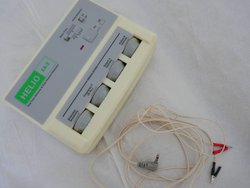 A study by Indonesian researchers at a hospital in Java, suggests electroacupuncture assists oocyte (immature egg cell) growth in women with polycystic ovary syndrome (PCOS). In a case controlled study, 44 patients with PCOS were randomly assigned to receive either lifestyle management advice, or the same advice plus electroacupuncture. The latter was given twice a week, beginning on the first day after menstruation, for a total of 12 sessions.
A study by Indonesian researchers at a hospital in Java, suggests electroacupuncture assists oocyte (immature egg cell) growth in women with polycystic ovary syndrome (PCOS). In a case controlled study, 44 patients with PCOS were randomly assigned to receive either lifestyle management advice, or the same advice plus electroacupuncture. The latter was given twice a week, beginning on the first day after menstruation, for a total of 12 sessions.